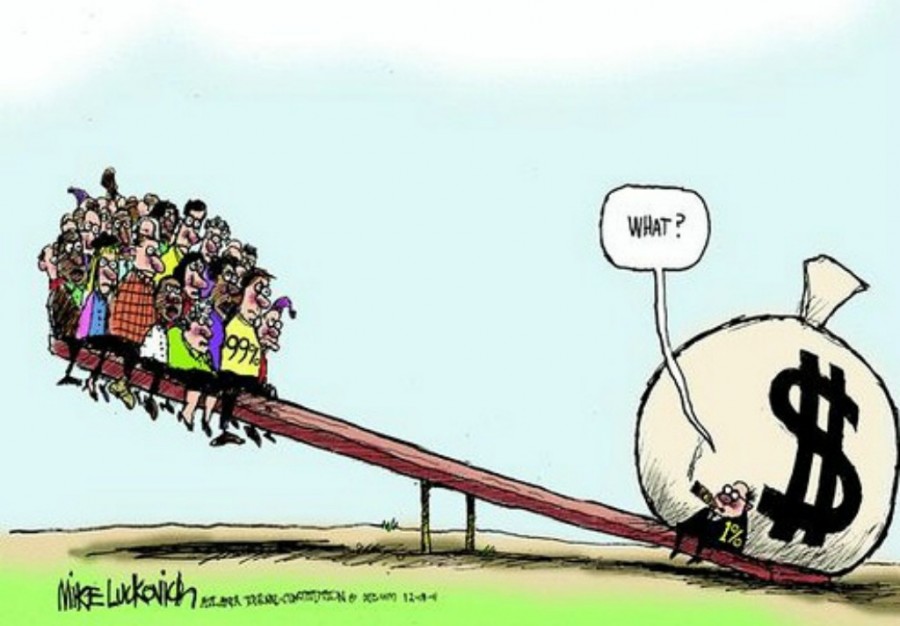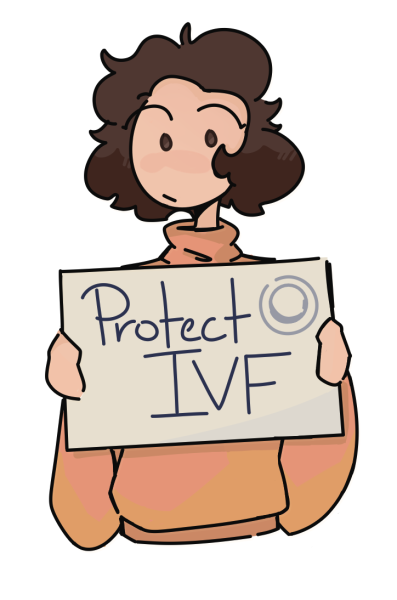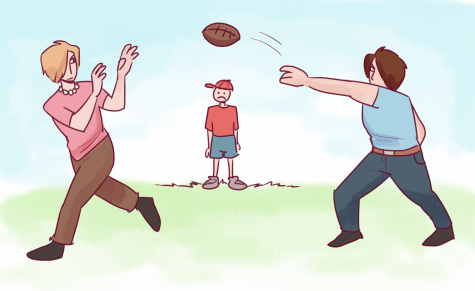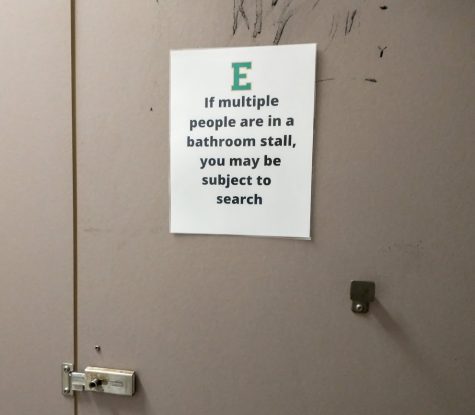Understanding Economic Inequality
March 5, 2016
Edina is wealthy, very wealthy. And, despite our cake-eating reputation, it’s hard to fully comprehend this reality. A few facts: According to Forbes, Edina 55424 is the most affluent Zip Code in Minnesota and the 51st wealthiest in the nation. Concerning average income, Edina outranks Beverly Hills, CA, Lake Forest, IL, and every city in Arizona, Wisconsin, Ohio, Michigan, Colorado, and Oregon. Often, our perceptions are clouded by wealth, and it becomes difficult for us to wrestle with issues such as poverty and economic inequality. In recent years these issues have become increasingly troublesome.
Economic inequality is perhaps the single most concerning issue on today’s political docket. Ranking in the 30th percentile globally, the US suffers from higher rates of income inequality than any other nation state on the United Nations Developed Nations Index. The Pew Research Center reports that the top 1% of Americans possess between 35% and 40% of the nation’s wealth. Additionally, as The Guardian explains, in the next decade, this divergence will increase exponentially.
The cause of such a wide imbalance is deeply rooted in our stagnating economic policy. Where European nations have improved, the United States has remained largely unchanged. We boast nearly two centuries of laissez faire, but generally fail to realize the consequences of this system.
In 1789, unrestrained capitalism sounded like a novel idea, glowing in comparison to the the stringent tax regulations of the British. But today, the globalized marketplace makes this sentiment irrelevant. Massive international corporations grow rapidly, grappling the horns of prices and politics. Meanwhile, millions of Americans find themselves cemented in loops of perpetual, cyclical poverty.
This last point is especially difficult to contemplate. In the minds of many Edinans, grit is thought of as all it takes to overcome obstacles. Yet, for millions, this attitude is inconceivable. The reason is simple: current precedent enormously empowers the lottery of birth. Once race, location of birth, parental income, and gender, are all considered, many find the American Dream unattainable.
Furthermore, current legislation is needlessly protective of very wealthy individuals. It’s no secret that during the 2008 economic crash—dubbed the catalyst of modern corporate wealth surges—a number of Wall Street Executives were involved in fraudulent activities. However, as Reuters reports, not a single top Wall Street Executive was convicted of criminal charges relating to the crash. For comparison, 1.5 million low income Americans were incarcerated for nonviolent crimes as part of the war on drugs over this same period of time.
Today, the US’s economic inequality is equivalent to that of 1928, a year both preceding the greatest economic crash in recorded history, and infamous for the absurdity of it’s wealth inequality. The reciprocating effect of such a severe prognosis is startling. Sending shockwaves throughout every aspect of American life, it is uniquely burdensome for Edinans. Perpetuating both cyclical poverty and cyclical wealth, economic inequality is intrinsically difficult for Edinans to grapple with. Not only does our wealth displace us from societal comprehension, it too empowers us to potentially infinite gains. As the poor get poorer, the rich do indeed get richer; conversely, when economic inequality is combatted, the wealthy lose.
Hence, as economic inequality continues to plague our society with increasing persistence, Edina is faced with a difficult choice. Either to make a sacrifice for the betterment of others, or to fight and maintain a system for the betterment of ourselves.









